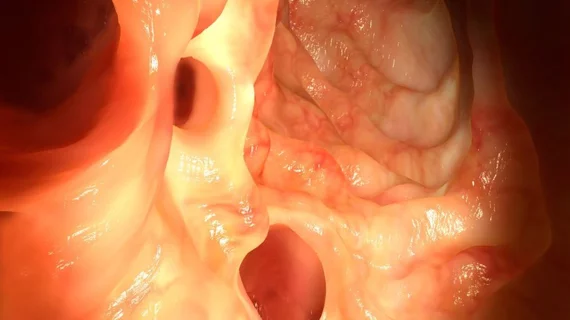AI appears headed for the endoscopy suite
Nearly 90% of U.S. gastroenterologists are open to using AI for help performing high quality colonoscopies. And of these, 85% believe that computer-assisted polyp detection (CADe) stands to improve their endoscopic performance.
Further, more than three-quarters of surveyed GI specialists, 76%, would trust CADe to increase their detection rates for adenomatous polyps, which have the potential to become cancerous.
However, not many more than half, 57%, would embrace the use of computer-aided diagnosis (CADx) to support a “diagnose and leave” strategy for hyperplastic polyps, which tend to be small and benign.
The findings are from a study conducted at Cleveland Clinic Florida. The study report is running in Endoscopy International Open.
Tyler Berzin, MD, and colleagues emailed surveys to 330 gastroenterologists around the country, drawing completed forms from 124 (38%).
The team found the strongest predictor of whether a GI doctor believed CADe would boost their numbers of appropriately removed polyps was post-fellowship experience of fewer than 15 years.
Commenting on this finding, Berzin and colleagues suggest the lesser-experienced—i.e., younger—GI doctors “have more optimism regarding AI’s ability, which would also explain why they believed CADe would result in higher endoscopist satisfaction.”
The team also found the highest hurdles AI might face in penetrating clinical gastroenterology markets are cost (cited by 75 %), potential for physicians to become dependent on the technology (63%) and added time to complete colonoscopies (60 %).
“[T]here is strong interest among U.S. gastroenterologists about AI assistance during endoscopic procedures, and they believe it would improve their performance, specifically with regard to CADe polyp detection,” Berzin et al. conclude. “As CADe and CADx tools continue to develop at a rapid pace, we expect that adoption of CADe for colonoscopy in the U.S. gastroenterology community will outpace adoption of CADx.”
The study is available in full for free.

